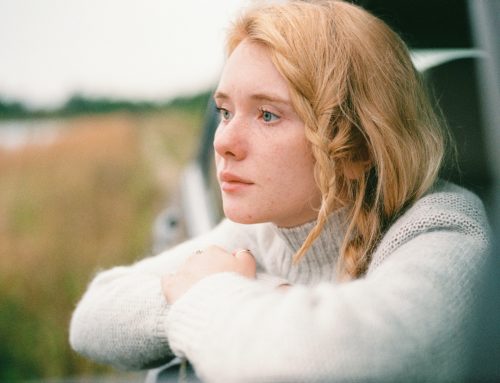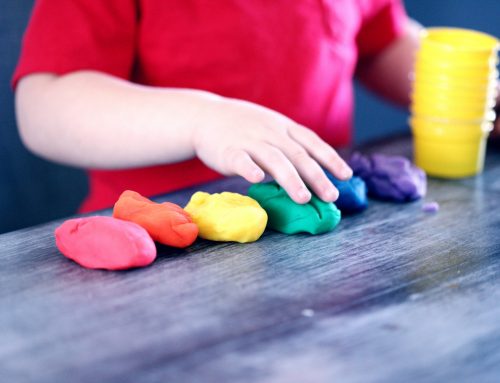“Before you leave, you should decide whether your marriage will survive.” Twenty years ago, at the worst time of my life, those words were whispered in my ear as I was wheeled from the delivery room to the intensive care unit. For years I questioned why a healer, a nurse, would say such hateful words to a mother who had just lost her children. Pregnancy didn’t come easily for us.
When the Unexpected Knocks You Down
We endured medical procedures, fertility treatments, and many, many tears. But hope prevailed, and pregnancy occurred. It was an indescribably beautiful time in my life, my dream. That may seem a little idealistic, but when your life’s dream becomes the struggle of your life, you relish the time when it becomes a reality. I’ve had many years to ponder those words, and I’ve concluded they may have saved my marriage. Why? I learned very quickly upon arriving home that this journey was one my husband and I would travel in very different ways. As I worked through the grief and the pain that engulfed my very being, I became committed to walking through the pain with others. The question, then, was how to help with grief. I’ve come to know, professionally and personally, that grief is individual and deeply personal; there’s no roadmap or timeline, and it (grief) demands attention.
I Was Lost in the Inexplicable…
When I was in the midst of my grief, I found myself in an inexplicable place. I was confused, tired, and angry; I was angry when asked about the death of my children; I was equally angry when it was ignored. I knew I was completely irrational. My therapist suggested I read a book by Alan D. Wolfelt, Ph.D., a grief counselor/author/thanatologist. Wolfelt says, “Think of your grief as a vast, mountainous, inhospitable forest. You are in the wilderness now. You are in the midst of unfamiliar and often brutal surroundings. You are cold and tired. Yet, you must continue the journey through this wilderness. To find your way out, you must become acquainted with its terrain and learn to follow the sometimes hard-to-find trail that leads to healing”. This image was one to which I could relate, and I continue to return to this passage when grief is difficult to bear.
Grief; It’s a Learning Process
To say it’s painful doesn’t begin to express its magnitude, but I have learned a few things.
- There is hope. Looking back, I’ve realized that while everyone around me was awkward and weird, my grief wasn’t. When I allowed myself to accept the complicated emotions (ANGER, despair, jealousy, and hopelessness) and find comfort in the discomfort, I found acceptance, and with the acceptance came reconciliation. With reconciliation, I allowed myself to find hope for a brighter day.
- It’s a spiritual journey. In the book, Understanding Your Suicide Grief, Alan D. Wolfelt, Ph.D., writes, “In the Celtic tradition, “thin places” are spots where the separation between the physical world and the spiritual world seem tenuous. They are places where the veil between the holy and the every day are so thin that when we are near them, we intuitively sense the timeless, boundless spiritual world.” I’ve always been drawn to the water, especially the sea. When I grieve, I feel the pull, tempting me to a place of quiet and solitude.
- There is no timeline; grief isn’t singular. While I was grieving death, I was also grieving the loss of a dream. I grieved all the experiences I would never have…the snuggles, the first day of kindergarten, prom, Christmas dinner, and weddings. Though society tells us otherwise, there is no way to put an expiration date on grief.
- The grief process is not meant to be done alone, but we often process it in our unique ways. As I mentioned, my husband and I grieved differently. He threw himself into work, a distraction from the pain. He rarely showed emotion and would watch television for hours. On the other hand, I constantly cried, beating myself up with all the “what-ifs,” “if only,” and “whys.” Yet amid the grief, we clung to each other. We all grieve differently. Stephen Moeller, a grief specialist, says, “Unfortunately, many people are not aware that each of us responds differently to each loss, and there is often a perception that others in the family did not care as much as we did. This is one of the reasons that some families seem to fall apart after a loss. Rather than fighting over how others are coping or arguing over who is hurting the most, a better solution would be to accept that each is hurting and coping in their private way and that the best thing to do is take action to move forward.”
- Healing happens when we open our hearts. Adjusting to one’s grief comes in waves. Some days the waves crash in a fury. On other days the waves gently lap against the shore. It’s ok to share our grief with others. It’s ok to say “no” to events and expectations. It’s ok to say “yes” to nurturing your soul, to welcome the messiness; grief IS messy. When we allow emotions, we allow healing. Lisa Apollo says, “The full weight of grief is processed as we deal with the full breadth of loss.”. Healing from grief is brave; it is courageous, and it is so hard.
When grief arrives, as it does for us all, it won’t be neat and tidy. My wish is for you to set your intent to find hope, nurture your soul, and be open to the messiness it brings. Open your heart to your pain and allow others to accompany you on your journey. Encourage the tears, but cherish the hope, too.




